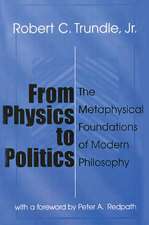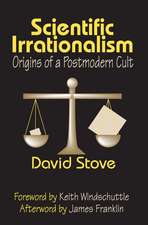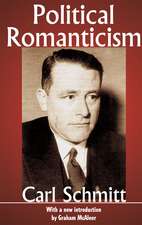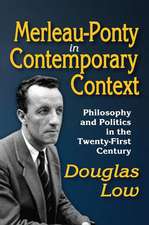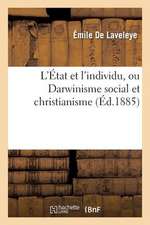On the Eternal in Man
Autor Max Scheleren Limba Engleză Paperback – 30 noi 2009
The subject of On the Eternal in Man is the divine and its reality, the originality and non-derivation of religious experience. Scheler shows the characteristic quality of that which is religious. It is a particular essence that cannot be reduced to anything else. It is a sphere that belongs essentially to humankind; without it we would not be human. If genuine fulfillment is denied it, substitutes come into being. This religious sphere is the most essential, decisive one. It determines man's basic attitude towards reality and in a sense the color, extent and position of all the other human domains in life. It forms the basis for various views about life and thought.
Scheler was emphatically an intuitive philosopher. In Scheler's work the break between being as the almighty but blind rage and value as the knowing but powerless spirit-has become complete, and makes of each human a split being. Personal experiences may be reflected here. The development of Scheler's work as a whole was highly dependent on his personal experiences. It is this that gives Scheler's work its liveliness and its validity.
| Toate formatele și edițiile | Preț | Express |
|---|---|---|
| Paperback (1) | 459.05 lei 6-8 săpt. | |
| Taylor & Francis – 30 noi 2009 | 459.05 lei 6-8 săpt. | |
| Hardback (1) | 1121.25 lei 6-8 săpt. | |
| Taylor & Francis – 14 sep 2017 | 1121.25 lei 6-8 săpt. |
Preț: 459.05 lei
Nou
Puncte Express: 689
Preț estimativ în valută:
87.86€ • 91.37$ • 73.52£
87.86€ • 91.37$ • 73.52£
Carte tipărită la comandă
Livrare economică 15-29 martie
Preluare comenzi: 021 569.72.76
Specificații
ISBN-13: 9781412810722
ISBN-10: 1412810728
Pagini: 492
Dimensiuni: 152 x 229 x 29 mm
Greutate: 0.68 kg
Ediția:1
Editura: Taylor & Francis
Colecția Routledge
Locul publicării:Oxford, United Kingdom
ISBN-10: 1412810728
Pagini: 492
Dimensiuni: 152 x 229 x 29 mm
Greutate: 0.68 kg
Ediția:1
Editura: Taylor & Francis
Colecția Routledge
Locul publicării:Oxford, United Kingdom
Cuprins
Introduction to the Transaction Edition Foreword by August Brunner Translator's note Preface to first German edition Preface to second German edition REPENTANCE AND REBIRTH THE NATURE OF PHILOSOPHY AND THE :MoRAL PRECONDITIONS OF PHILOSOPHICAL KNOWLEDGE 1. The autonomy of philosophy 2. The philosophical attitude (the idea of the philosopher) 3 Analysis of the moral upsurge A. The moral upsurge as a personal act of 'the whole man' B. Starting-point and elements of the moral upsurge 4 Philosophy's object and cognitive attitude PROBLEMS OF RELIGION The renewal of religion 1. Religion and Philosophy Existing views typified The types of partial and total identity Dualistic views The system of conformity 2. The Essential Phenomenology of Religion Branches of study The Divine Basic character of the divine The attributes of God in natural religion Growth and decline of the natural knowledge of God Attributes of the divine mind The religious act The immanent aspects of the religious act Religious acts are a law unto themselves The religious act in its internal and external, individual and social aspects No man can avoid the religious act Some recent basic theories of natural religion On the Eternal in Man 3 Why no New Religion? The idea of a personal God conflicts with the expectation of a new religion The prospects of a 'new religion', seen in the light of the sociohistorical distribution of cognitive aptitudes CHRISTIAN LovE AND THE TwENTIETH CENTURY: An Address 1. Humanitarianism and the Christian commandment of love 2. The Christian idea of community 3 The present relevance of the Christian idea of community THE RECONSTRUCTION OF EuROPEAN CuLTURE: An Address 1. The political framework and moral conditions of cultural reconstruction in Europe 2. The formative powers available for the spiritual renewal of Europe Editorial Notice, by Frau Maria Scheler Bibliography of Scheler's published works Annotations, by Frau Scheler A Note on the Author, by I. M. Bochenski Index of Names
Descriere
Max Scheler (1874-1928) decisively influenced German philosophy in the period after the First World War, a time of upheaval and new beginnings


